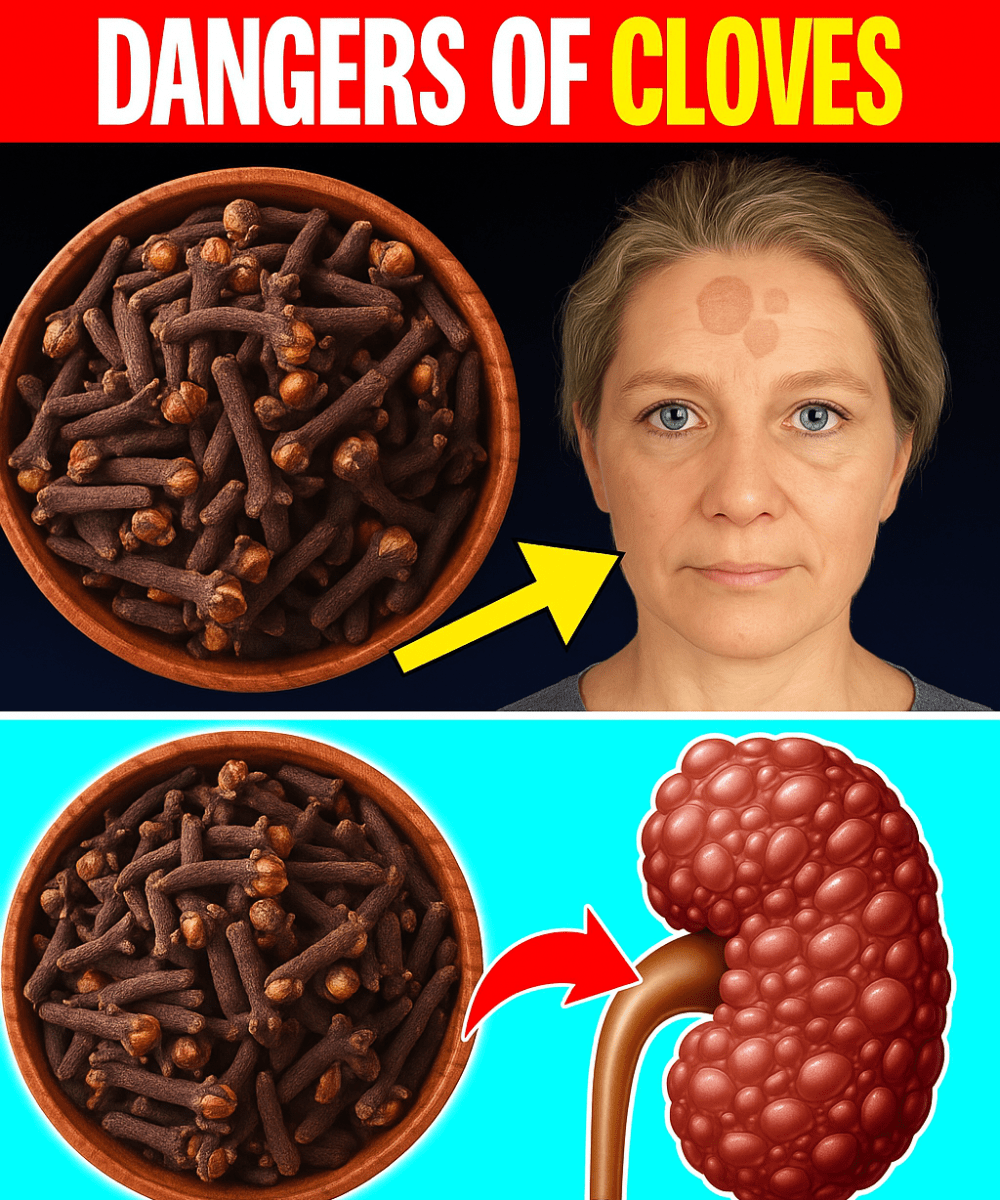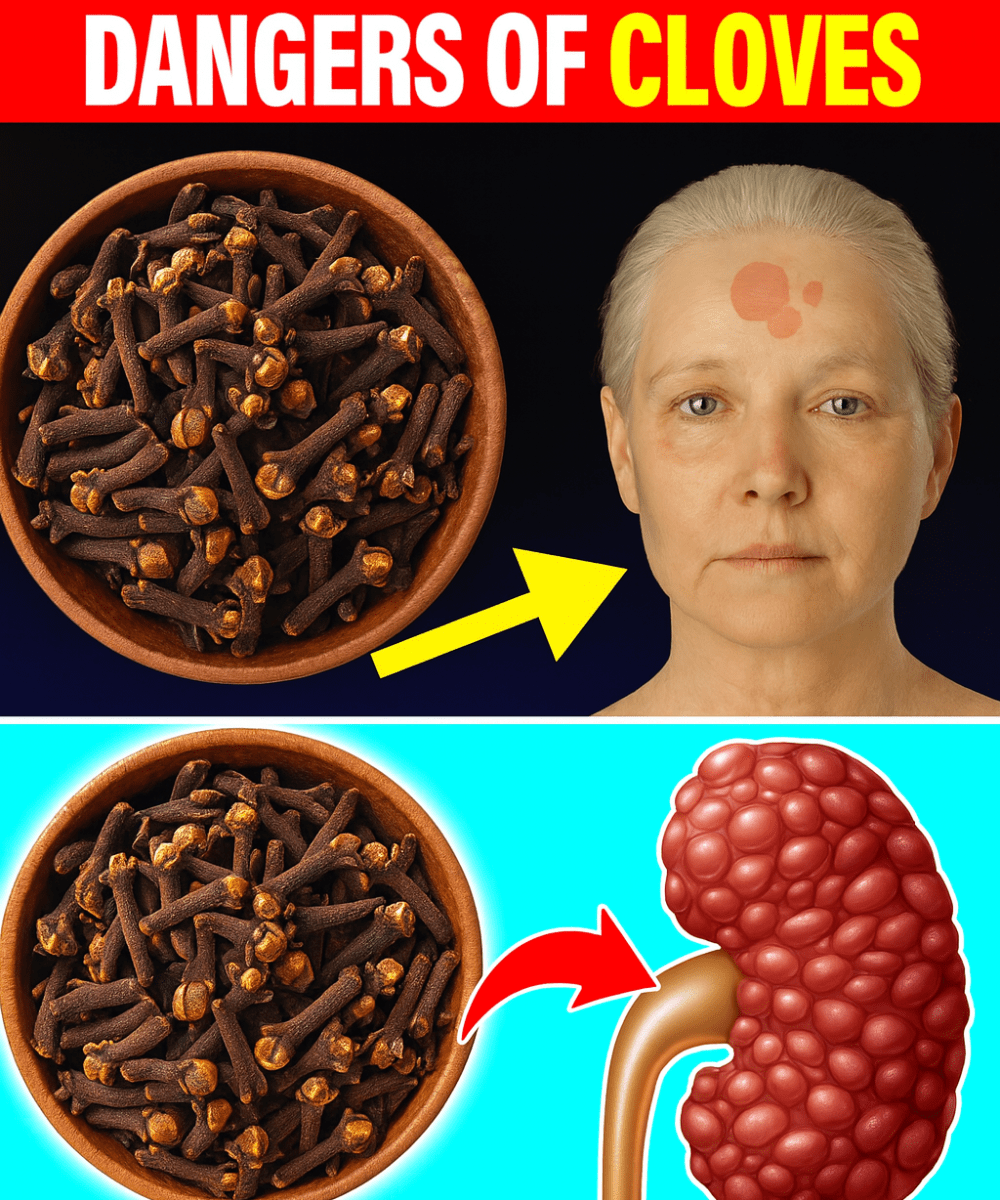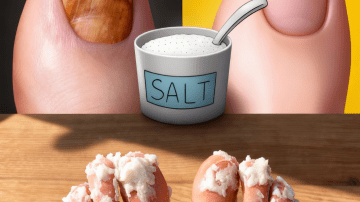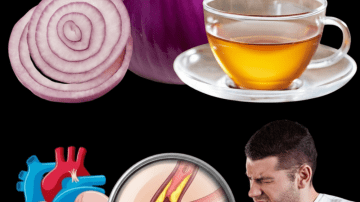Cloves, those tiny aromatic buds, are celebrated as a culinary and medicinal marvel. Their warm, spicy flavor elevates dishes, while their antioxidants and anti-inflammatory properties promise health benefits galore. But what if this beloved spice isn’t as harmless as it seems? Hidden beneath their allure lies a surprising truth: cloves can pose serious risks for some people. Intrigued? Let’s dive into the nine critical health conditions where cloves might do more harm than good—and why you need to know before adding them to your diet or wellness routine. Stay informed to protect your health and make smarter choices.

🌟 The Double-Edged Sword of Cloves
Cloves, derived from the flower buds of the Syzygium aromaticum tree, are packed with eugenol—a potent compound responsible for their health benefits and risks. While they’re praised for aiding digestion, fighting inflammation, and even soothing toothaches, cloves aren’t universally safe. For certain individuals, this spice can trigger discomfort, worsen symptoms, or even lead to dangerous complications. Ready to uncover when to steer clear? Here’s a detailed look at the health conditions that make cloves a risky choice.
🚨 Health Conditions Where Cloves Can Backfire
🔥 1. GERD or Acid Reflux: A Burning Concern
Cloves’ eugenol relaxes muscles, including the lower esophageal sphincter, which acts as a gatekeeper between your stomach and esophagus. For those with gastroesophageal reflux disease (GERD) or frequent heartburn, this relaxation can worsen symptoms by allowing stomach acid to flow upward, causing pain and irritation.
What to do: Skip cloves in your diet, especially in teas or concentrated forms. Consult your doctor before using clove-based remedies to avoid aggravating your condition.
💉 2. Blood Thinners or Bleeding Disorders: A Risky Mix
Cloves act as a natural blood thinner, which can benefit heart health but spells trouble for those with bleeding disorders like hemophilia or anyone taking medications such as warfarin, aspirin, or other anticoagulants. Combining cloves with these drugs could amplify their effects, increasing the risk of internal bleeding or bruising.
What to do: Avoid cloves if you’re on blood thinners or have a clotting disorder. Always seek medical advice before incorporating cloves into your routine.
🤧 3. Spice Allergies: Unexpected Reactions
If you’re sensitive to spices or plants in the Myrtaceae family (think eucalyptus or guava), cloves may trigger allergic reactions. Symptoms can range from mild to severe, including:
- Itching or skin rashes
- Swelling of the lips or throat
- Difficulty breathing
What to do: Start with a tiny amount to test for reactions, or perform a patch test with diluted clove oil. If you have known allergies, avoid cloves altogether.
🤰 4. Pregnancy or Breastfeeding: Proceed with Caution
Cloves can ease minor pregnancy discomforts, but their eugenol content may stimulate uterine contractions, posing risks in early pregnancy. For breastfeeding mothers, eugenol can pass into breast milk, potentially affecting the baby.
What to do: Limit clove use to culinary amounts and consult your healthcare provider before using clove-based remedies during pregnancy or nursing.
🧬 5. Liver Conditions: A Hidden Danger
High doses of eugenol, found in cloves and especially clove oil, can strain the liver. For those with liver conditions like fatty liver disease, hepatitis, or a history of liver damage, excessive clove consumption may lead to toxicity or worsen existing issues.
What to do: Stick to small amounts in food and avoid clove oil or supplements unless prescribed by a doctor.
🩺 6. Stomach Ulcers or Gastritis: Irritation Alert
While cloves stimulate digestion, they can irritate the stomach lining in people with ulcers or chronic gastritis. Instead of soothing, they may increase acidity and pain, making symptoms worse.
What to do: Avoid cloves in teas, oils, or concentrated forms if you have stomach issues. Opt for gentler digestive aids recommended by your doctor.
🩸 7. Low Blood Sugar (Hypoglycemia): A Delicate Balance
Cloves may help regulate blood sugar, but for those with hypoglycemia, they can lower levels too much, leading to symptoms like:
- Dizziness
- Fatigue
- Fainting
What to do: Monitor your blood sugar closely if you use cloves, and avoid them if you’re prone to low blood sugar episodes. Consult a healthcare professional for guidance.
🚱 8. Kidney Conditions: A Strain on Filtration
Large amounts of cloves or clove essential oil can overtax the kidneys, particularly in those with chronic kidney disease or impaired kidney function. The concentrated compounds may accumulate, causing strain or worsening existing damage.
What to do: Use cloves sparingly in cooking and avoid clove oil unless under medical supervision.
🚫 9. Sensitive Skin and Clove Oil: A Painful Mistake
Clove oil is highly potent and can cause burns, irritation, or allergic reactions on sensitive skin. Undiluted application, especially on open wounds, can lead to severe discomfort or damage.
What to do: Always dilute clove oil with a carrier oil (like coconut or olive oil) before applying to skin. Test on a small area first, and never use on broken skin.

🧠 Why Cloves Aren’t Always Your Friend
Cloves are a natural powerhouse, but their potency is a double-edged sword. For some, they’re a health-boosting ally; for others, they’re a hidden risk. The key lies in understanding your body and its unique needs. Conditions like acid reflux, bleeding disorders, or liver issues can turn this spice from a remedy into a problem. By knowing when to avoid cloves, you empower yourself to make safer, smarter health choices.
✅ How to Use Cloves Safely
To enjoy cloves without the risks, follow these practical tips:
🥄 Stick to Culinary Use: Use whole or ground cloves in small amounts to flavor dishes like curries, baked goods, or teas. This minimizes exposure to concentrated compounds.
🧪 Dilute Clove Oil: For topical use, mix clove oil with a carrier oil (1–2 drops per tablespoon of carrier oil) to prevent skin irritation.
👩⚕️ Consult Your Doctor: If you have any of the conditions listed above, talk to your healthcare provider before using cloves medicinally or in supplements.
🔍 Start Small: If you’re new to cloves, begin with tiny amounts to gauge your body’s reaction, especially if you suspect allergies.
🌿 Choose Quality: Opt for high-quality, organic whole cloves or trusted essential oils to avoid contaminants that could worsen side effects.
🌟 The Bottom Line: Knowledge is Power
Cloves are a remarkable spice with undeniable benefits, but they’re not a one-size-fits-all solution. If you have GERD, bleeding disorders, allergies, liver or kidney issues, or are pregnant, cloves could do more harm than good. Moderation is key, and when in doubt, professional medical advice is your best guide. By understanding the risks, you can enjoy cloves safely—or know when to say no.
🧠 Pro Tip: Natural doesn’t always mean safe. Arm yourself with knowledge to make choices that truly support your health.
This isn’t just about avoiding cloves—it’s about taking control of your wellness journey. Stay curious, stay cautious, and keep your health first.






